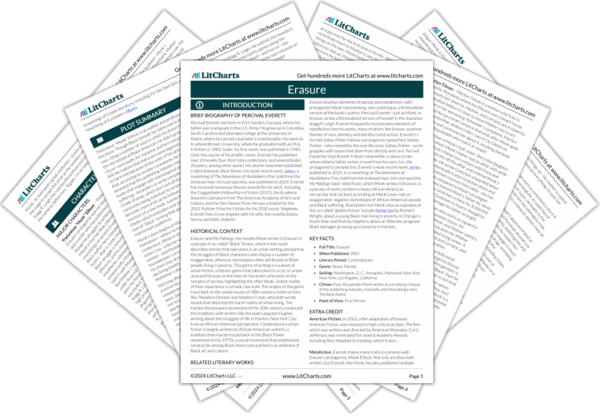Monk comes off as dismissive of Bill in this scene. Although he frames his advice that Bill not tell Mother about his homosexuality as a practical decision, it perhaps betrays Monk’s own jealousy at Bill for his willingness to be open about parts of himself that might invite rejection and disappointment. Monk does not have this resolve—that’s why he has chosen to perform the role of Stagg R. Leigh rather than admit to his authorship of
My Pafology. Monk’s meditation on fishing adds to fishing’s symbolism, underscoring the clarity and natural ease of nature as compared to the uncertainty and unnatural ways that humans engage with other people and with their surroundings.


